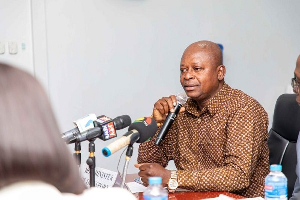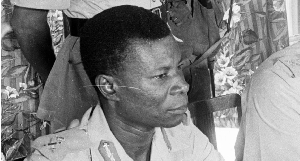Accra, Aug. 18, GNA - The National Health Insurance Authority (NHIS) on Tuesday suspended the County Hospital and Atasomanso Hospital, both heath facilities in Kumasi, from providing services to NHIS subscribers for three months, for discrepancies.
Their certification as NHIS providers had also been redrawn after a clinical audit cited them for double billing, over billing, irrational prescribing and no adherence to tariffs.
At a press conference in Accra to brief the media on developments regarding the implementation of the NHIS at the provider and scheme level, the Chief Executive of the NHIS, Sylvester Mensah said steps had been taken to ensure that providers were reimbursed for only what was genuinely due them and that the schemes prudently managed resources under their control.
The Authority therefore asked the public not to access health care from the two hospitals, saying, those who did would have to pay for the services rendered to them.
The Hospital Manager and the accountant at the Amasaman Hospital in the Ga District has also been asked to step aside whilst investigations goes on for anomalies ranging from misapplication of funds, inability to account for monies, poor controls/conflict of interest and weakness in organisational process as well as outright incompetence on the part of management of the scheme.
Mr Mensah said the audit being conducted was an effort to ensure that the resources and safety of the public was protected and urged the media to support the effort, adding that, the NHIS would deploy all means at its disposal to ensure that perpetrators of those acts were brought to book.
Mr Mensah explained that the County Hospital for example billed a patient for 37 bags of intravenous infusion fluids while it actually used 16 bags and also gave medicines outside the NHIS list for which the schemes paid. Where prices were higher than their substitutes on NHIS lists members were made to pay top-ups contrary to NHIS policy and guidelines.
The Atasomanso hospital on the other hand diagnosed "psychosomatic" disorder for about 60 percent of patients, more than malaria, which was the most common condition. It also treated patients with the most expensive anti stomach ulcer medicines on the medicines list without allowing patients to undergo endoscopy to show that the ulcers were present.
Many claims showed double billing and overcharging, while in some instances the hospital claimed wrong and higher tariffs for diagnosis, which did not match the clinical notes, he said, and gave an example of a patient who was admitted for abdominal pains and billed the scheme for severe infection at the cost GHC158.90 instead of GHC43.70, he said. The NHIS boss noted that the activities of the two hospitals constituted serious financial leakages on the scheme that should be stopped and noted that though the hospitals appealed against the decisions, a review upheld the NHIS findings.
The Amasaman District hospital also paid GH¢14,260 from petty cash in many instances as two months allowances for 23 national service persons representing GH¢ 620.00 per head but audit revealed the personnel were paid GH¢62.00.
The report said the present tariff structure allowed three visits within two weeks but some providers were billing the NHIS three times more though patients did not visit the facility three times in the week.
He condemned the recent actions by some NDC supporters, who were alleged to have besieged some Scheme Offices at Asougyaman, to take over the offices and described the action as "unfortunate and against the law". He urged the security agencies to arrest and prosecute anyone found violating the laws of the country. 18 Aug. 09
General News of Tuesday, 18 August 2009
Source: GNA












